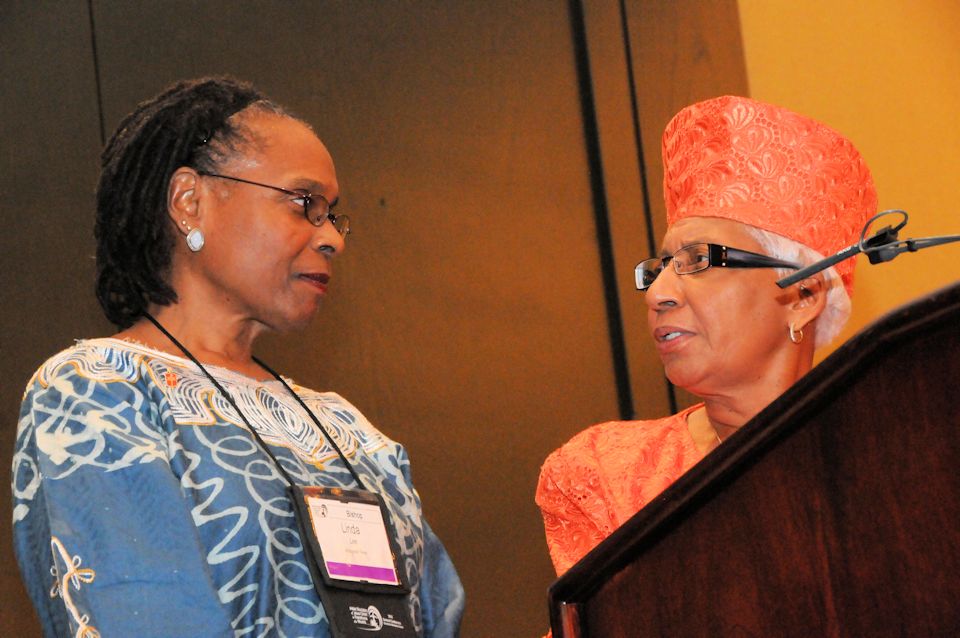Black clergywomen reflect in the new book, “Pioneer Black Clergywomen of the United Methodist Church.” Proceeds of the book, available from Cokesbury, will benefit scholarships.
JIM PATTERSON
UM News
When Bishop Linda Lee started work in the Wisconsin Conference in 2004, she noticed that she got a lot of unsolicited advice about the administrative duties of her new position.
The strange thing was, most of the advice-givers had never been a bishop. She already had held the position in the Michigan Conference.
“I became aware of the fact that some people were of the mindset that being spiritual and Black could not be equated with good administration,” Lee said.
The anecdote is one of many in “Pioneer Black Clergywomen: Stories of Black Clergywomen of the United Methodist Church 1974-2016” that lays out the frustrations, challenges, and rewards during the careers of nine Black United Methodist clergywomen.
The book was written by the Rev. Josephine Whitely-Fields, who retired in 2014 after more than 40 years as a pastor, seminary professor, and administrator. She also is one of the subjects of the book, which uses a questionnaire format to let the women speak for themselves.
“Some of our ladies have been attacked physically,” Whitely-Fields said. “We have also been sexually harassed.”
Some people believe no woman of any race should be in the ministry, she said.
“There are people who identify with the pastor as a representative of Christ, and because Christ was male then they feel that a female cannot adequately be the spiritual representative,” Whitely-Fields said. Her answer: “Our call didn’t come from man. Our call came from God. Therefore, you or nobody else can tell me that I cannot answer the call to ministry.”
The Rev. Sallie Crenshaw was the first Black woman ordained in The Methodist Church in 1958. It took until 1984 for the first Black woman bishop, Bishop Leontine T.C. Kelly, to be appointed in The United Methodist Church.
With financial help from the United Methodist Commission on Archives and History and the United Methodist Board of Higher Education and Ministry, Whitely-Fields sought Black clergywomen willing to tell their stories. Twenty-three agreed, nine of whom are included in the book.
In addition to Lee and Whitely-Fields, the profiles include Western Pennsylvania Conference Bishop Cynthia Moore-Koikoi, the Rev. Cheryl Bell, the Rev. Ella DeDeaux, Virginia Conference Bishop Sharma Lewis, East Ohio Conference Bishop Tracy Smith Malone, the Rev. Edna Morgan, and the Rev. Tara Sutton, Michigan Conference.
Especially in the earlier days of Black clergywomen, there were appointments to small, isolated churches, some on the way to closure. There were also pay disparities.
“On the other hand though, once we get past those initial barriers, people respond to us in a different way because they are able to identify with us as women to women,” Whitely-Fields said. “Because the majority of the people in the church are women, and when they find a woman that is sensitive and compassionate, they begin to gravitate and can become our greatest supporters.”
Proceeds from the book will benefit scholarships for Black clergywomen.
Last Updated on March 15, 2021

